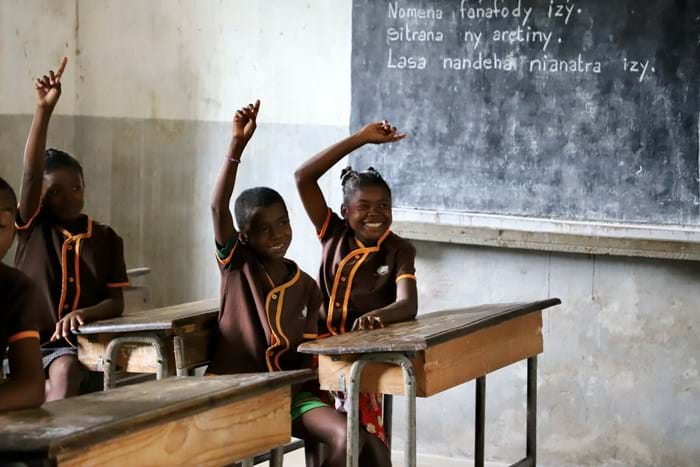- 0 out of 0
children do not complete their primary education
- 00,000
primary school children benefit directly from the project
Where
Antananarivo, MadagascarFocus area
EducationDuration
2020 - 20232023 - 2026Economy
DKK 15 million
Background
Madagascar is one of the poorest countries in the world (#158 out of 188 on the Human Development Index) with a population of ca. 26,2 million (2018). Nevertheless, Madagascar has received a relatively small share of the total official development aid directed to Africa (From 2010 – 2017: 1,1% compared to e.g. Ghana 2,9% or Tanzania 5,3%).
Madagascar’s rapidly growing population is likely to double by 2050, which will further increase pressure on the country’s natural resources, and give rise to the need for investments and economic growth to reduce poverty.
Although significant progress has been made, the Education sector in Madagascar continues to face many challenges. The living conditions of children and their families have deteriorated significantly due to COVID-19 and consecutive natural disasters, including floods, drought and cyclones.
The challenge
Madagascar’s education system struggles to offer quality learning opportunities to all children. Between 2005 and 2012, the Net Enrollment Rate (NER) in primary schools dropped from 83% to 69% in Madagascar. It has taken nearly 10 years for the NER in the primary cycle to start recovering, reaching 77% in 2018. Nonetheless, the proportion of children in primary schools remains lower than it was in 2005, and it is only 27% for the lower secondary cycle, reflecting the huge drop in the number of children transitioning between levels. Completion rates are also low: 56% finish primary and 26% finish secondary school.
In general, Malagasy children do not acquire the necessary knowledge and skills in schools. Among children between the ages of 7 to 14 years, only 7% demonstrate basic competencies in math and 23% in reading. In this, there are regional and gender-related disparities as well. For instance, in the Boeny region only 11% of boys have acquired basic reading competencies, compared to 28% of girls. It is 3% for boys and 9% for girls in the Atsimo-Andrefana region. These stark differences, which are consistent across most of the country’s schools, are primarily due to poor quality teaching.
The majority of teachers in Malagasy public schools are recruited from the community. Few have completed high school and even fewer have had sufficient pedagogical training. A 2016 survey on primary school teachers’ competencies in three key subjects shows that only 6% of teachers achieved a passing score in mathematics and 0% in French.
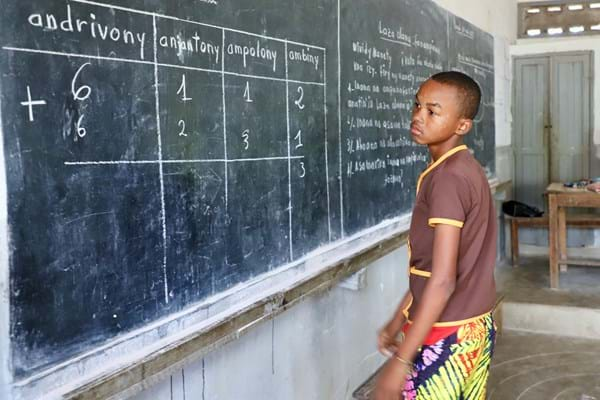
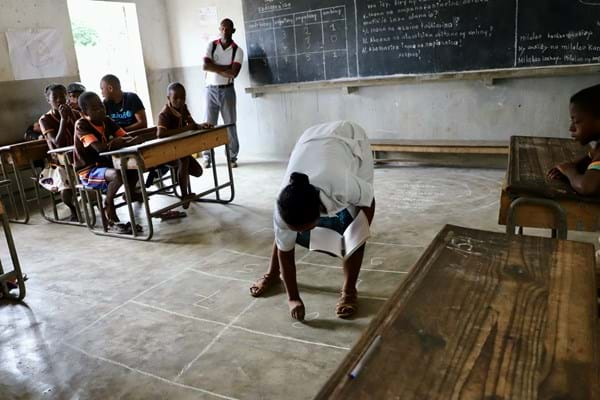
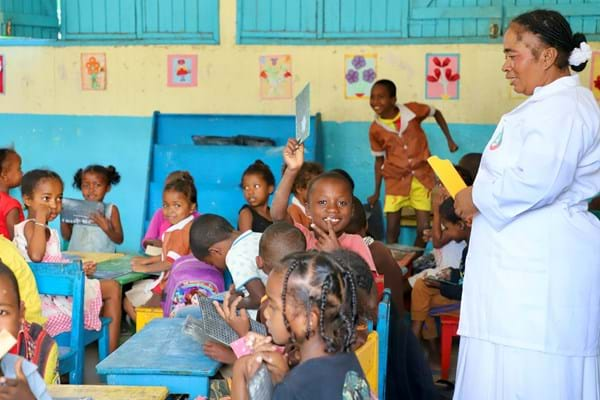
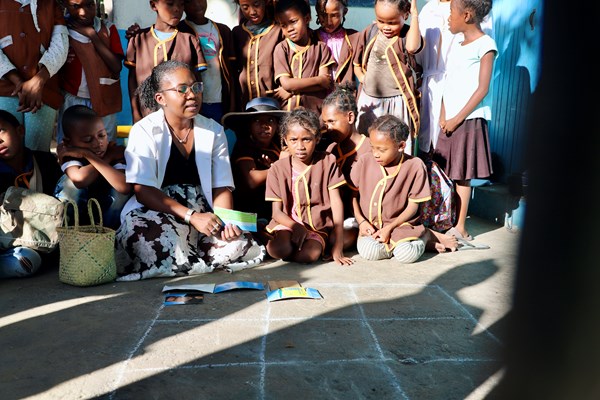
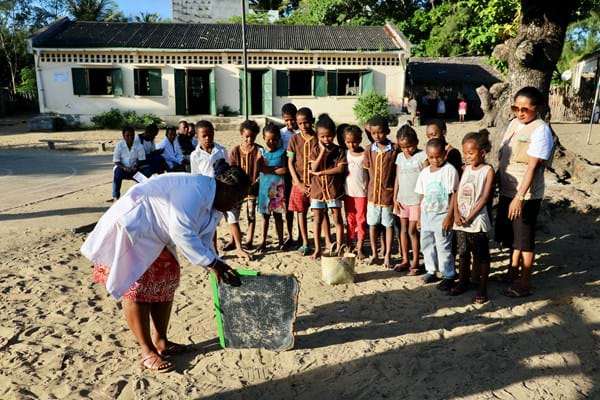
The project
Since 2015, UNICEF has contributed to the national catch-up class programme for out-of-school children at the primary school level. The catch-up class programme has traditionally focused on providing children who have dropped out of primary school the opportunity to attend a two-month accelerated learning course during the summer holidays. The catch-up class intends to prepare these children to mainstream back into public primary school at the level where they dropped out or at the next grade level.
To date, this programme has been a success in terms of improving access and retention for these students, but initial data from regions shows that it has been less successful in ensuring the quality of their learning during and after catch-up classes. No systematically collected and analysed data exists to track the learning progress of these particularly vulnerable students, and COVID-19 has highlighted the importance of catch-up systems and improving learning even more.
As a continuation of the Catch Up through Structured Pedagogy (CUSP) project implemented from 2020-2023, from 2023-2026 a scale-up aims to provide access to quality learning in a safe, equitable, inclusive, and appropriate school environment to girls and boys in primary school in Madagascar, specifically targeting the most excluded and vulnerable children. The project will be scaled up to eight regions with the following expected outputs:
- Improve access and retention to school;
- Ensure quality and inclusive education; and
- Strengthen education institutions and governance.
The proposed project will contribute to providing learning opportunities to at least 60,000 primary school girls and boys, including 15,000 marginalized children who would have been reintegrated into school after dropping out. In addition, the project is designed to build pedagogical capacities of at least 1,500 teachers and to ensure that education policies and programmes are continuously planned, monitored and assessed with effectiveness and efficiency at all levels.
This project phase goes beyond targeting out-of-school children, but extents to children who are already at school and with the aim to strengthen their retention, as well as improve their learning outcome. In-school tutoring for students who are lagging behind will help prevent and reduce the risk of students dropping out of school.
Indhold blokeret
Dette element kan ikke vises, da du ikke har givet accept til følgende typer af cookies:
- Marketing
Du kan ændre dine indstillinger ved at klikke på knappen herunder.
